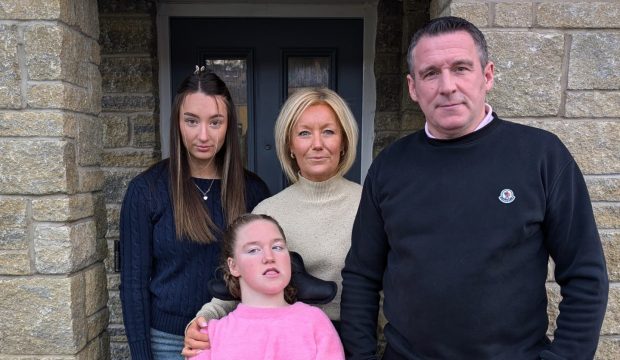Benefits claimants face a “postcode lottery” in which the mood of jobcentre staff can decide whether sanctions are imposed, MPs have heard.
SNP MP Mhairi Black wants a law change to ensure the process for deciding if sanctions should be applied is governed by “clear cut rules”.
The Work and Pensions Committee member said jobcentre staff do a “tremendous job given the system they have to work with”.
But she said her proposals recognise everyone has “bad” or “grumpy” days and would seek to prevent the mood of staff, or other factors, from “ruining someone else’s day”.
A consultation with more than 9,000 responses has taken place as part of work behind Ms Black’s Benefit Claimants Sanctions (Required Assessment) Bill.
Among the proposals is a “code of conduct” to set out the procedure for assessments, including how a claimant’s caring responsibilities, mental and physical health plus housing situation are considered.
It also seeks to make changes to the Universal Credit system.
Ms Black said “formal written advice” which people can “fully understand” is still needed to help people understand their “claimant commitment” – which outlines what they will be required to do in return for receiving Universal Credit.
Moving the Bill’s second reading, Ms Black (Paisley and Renfrewshire South) said: “As many people will know, it’s quite hard to get a private member’s bill to pass.
“While I, and I imagine my colleagues, would want to get rid of the sanctions regime altogether because we disagree with it, I’m trying to use this private member’s bill to make a genuine small change that the Government can hopefully get on board with.
“I’m not trying to be controversial. It’s trying to make a genuine small change.”
Ms Black said there is a “dramatic variation” throughout the UK as to how many sanctions are applied and why, with pressure on jobcentre staff and a lack of clear instructions available to them.
She quoted a person who replied to the consultation, telling MPs: “They went on to say ‘staff are human, staff can make mistakes, they can like or dislike clients, and their individual views can affect how they deal with the individuals on their case load – if they don’t like or trust someone they are much more likely to sanction than if they like or have sympathy for the individual’.
“Again, I must emphasise this is not a criticism of jobcentre staff. I think they do a tremendous job given the system they have to work with.
“But it is a recognition that we’re all human. We all have bad days. We all have grumpy days.
“But unless there are clear cut rules and regulations of conduct in place, that bad day can translate in to ruining someone else’s day and that simply cannot happen when you have someone else’s livelihood and survival in your hands.
“This creates a postcode lottery of sorts. It creates a situation whereby how you’re treated is completely dependent on where your assigned jobcentre happens to be in, who you happen to get as your work coach, and what mood they happen to be in.”
Tory Helen Whately (Faversham and Mid Kent) questioned this claim by Ms Black, telling the SNP MP: “A little earlier you did make the point on how the process works, having a decision-maker who is separate and not the individual’s normal work coach to avoid that personal dynamic.
“So it doesn’t make sense what you’re saying on this point.”
Ms Black said she believed Ms Whately was “confusing” two separate issues.
Ms Black earlier said she visited a jobcentre in South Thanet as part of her duties on the Work and Pensions Committee.
She told MPs she would refer to the Kent constituency as a “leafy, prosperous, Conservative, happy suburb where there doesn’t seem to be that many real hard issues”.
Tory former cabinet minister Michael Gove, intervening, said: “South Thanet is not a leafy suburb. It is one of the most deprived parts of the south east of England.”
He added: “Members of the Scottish National Party should not be selective in their championing of those suffering poverty.”
The Bill is unlikely to become law without Government support.










